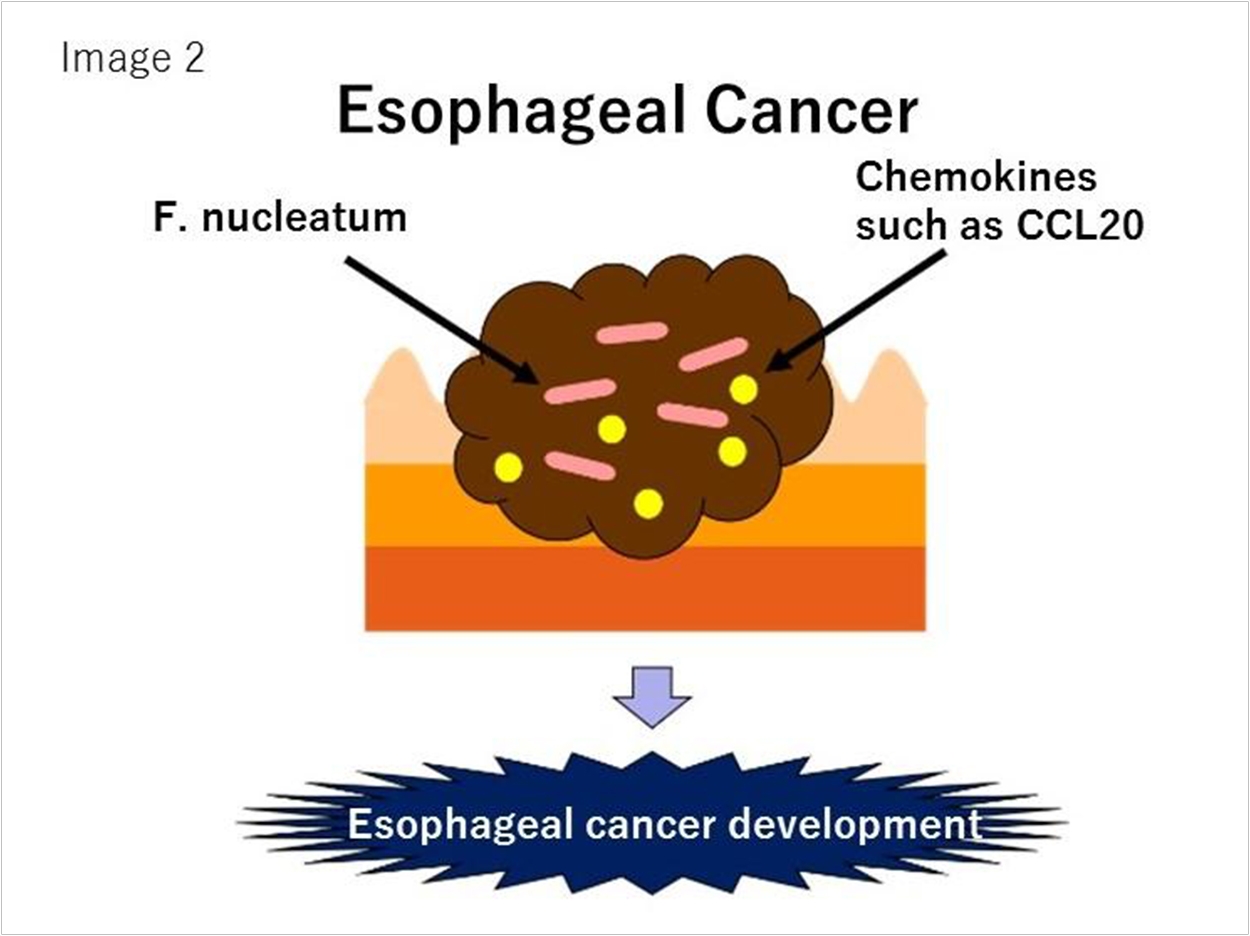
Fusobacterium nucleatum, which is usually found in the human mouth, has been related to the prognosis of esophageal cancer in Japanese patients by researchers from Kumamoto University. Though the bacteria are a causative agent of periodontal disease and can be found along the intestinal flora, it hasn’t been the focus of much research until now.
Other researchers have detected F nucleatum in colon cancer tissue and that it may affect the development of colorectal cancer, prompting the Kumamoto University researchers to suspect that the bacteria may play a role in esophageal cancer as well due to the proximity of the oral cavity to the esophagus.
Using real-time polymerase chain reaction analysis, they assessed DNA in the cancer tissue of 325 patients who underwent surgical removal of esophageal cancer at Kumamoto University Hospital and found that 74 of them, or nearly 23%, had F nucleatum in their cancer tissues.
Next, the researchers compared the after-surgery survival time of patients whose esophageal cancer tissues tested positive for the bacteria with those that didn’t and controlled for survival factors such as age, tobacco use, and tumor stage. They found that the group with F nucleatum in their cancer tissues had significantly shorter survival times.
Using RNA extracted from the tissues of F nucleatum positive and negative esophageal cancers, the researchers found that a group of genes related to inflammatory cytokines was different in patients with F nucleatum positive esophageal cancer. Analysis revealed that the number of genes of specific chemokines, which are proteins related to the transport of white blood cells such as CCL20 and CXCL7, had increased.
“This study suggested that the oral cavity bacterium F nucleatum may be involved in the development and progression of esophageal cancer via chemokines. It should be noted that it is still unknown whether F nucleatum itself causes esophageal cancer,” said professor Hideo Baba, who led the research.
“Further analysis by more institutions, preferably worldwide, is desired since intestinal flora differs among individuals,” Baba said. “In future research, after elucidating the role of F nucleatum in esophageal cancer development in more detail, we should be able to develop new drugs to better treat this form of cancer.”
The study, “Human Microbiome Fusobacterium Nucleatum in Esophageal Cancer Tissue Is Associated with Prognosis,” was published by Clinical Cancer Research.
Related Articles
Oral Bacteria Linked to Esophageal Cancer
Normal Bacteria Linked to Mouth and Throat Cancer
Oral Bacteria Linked to Stroke Risk



